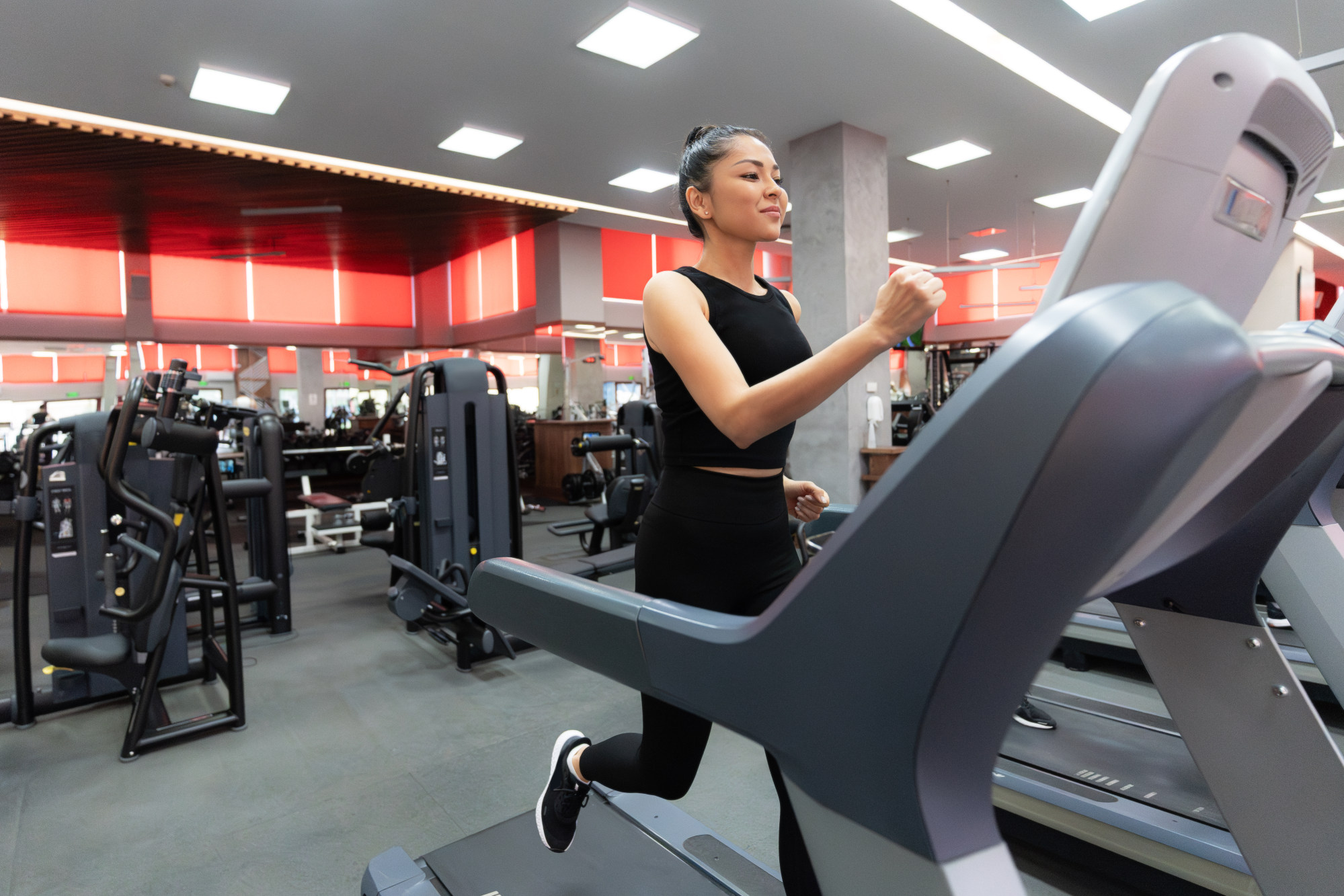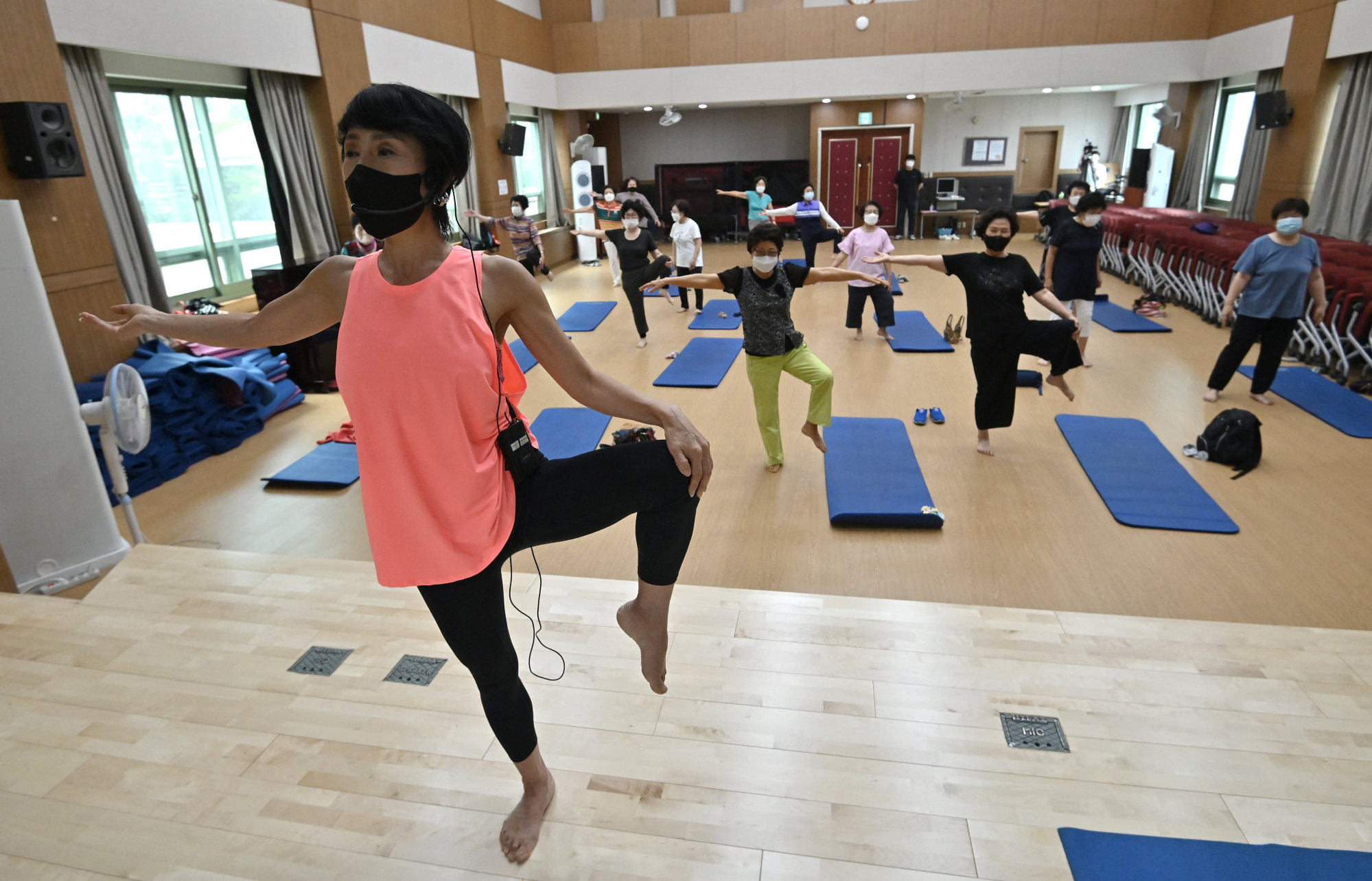
‘No aunties allowed’: South Korea gym only wants elegant ladies, bans the loud and unruly
- Fitness outlet sparks controversy by taking tough stance on group of women they say abuse facilities, noisy and unfashionable
A gym in South Korea has sparked a fiery debate online after it banned “aunties” and set criteria to distinguish them from elegant, well-mannered “ladies”.
The gym, in Incheon in the north of the country, posted a “no aunties allowed” notice at its entrance on June 7 which said: “Only well-mannered and elegant ladies are allowed to enter.”
The tag “aunties” refers to middle-aged women who are often associated with certain negative stereotypes.
It evokes notions of women who are freeloading, noisy and unfashionable.
The gym owner told a South Korean TV channel that the notice was a reminder to “rogue customers” to restrain themselves.

He said that so-called aunties would use washing machines in the locker room for one or two hours to do their laundry, causing the gym’s water bills to double.
They also stole supplies such as towels and soap, the owner added.
He said that many young female customers were verbally harassed by aunties, mocking them with taunts such as: “You should be good at having children”.
“These aunties come in and turn the gym into their own world, causing young people in their 20s and 30s to leave,” the owner said.
To prevent the loss of customers and rising costs, he was turning his gym into a “no aunties zone”.
The owner listed eight criteria to distinguish so-called aunties from “ladies”.
These included people who like to take advantage of others, regardless of their age and take seats reserved for pregnant women on public transport.
The criteria include people unwilling to spend their own money with a disregard for that of others, those with poor memory and judgment and a tendency to constantly repeat their words.
In China, these women are called da ma, and among their activities are wearing silk scarves and taking photos and selfies at scenic spots, occasionally clashing with local residents.
On Douyin, da ma who enjoy taking photos with colourful silk scarves at tourist spots often face mockery from netizens. They typically spend a long time taking selfies and are considered to have outdated tastes.
They are primarily composed of middle-aged and elderly women, known for occupying public spaces, turning them into noisy impromptu dance venues.

Pan Lan, chairwoman of the Hubei Yutong Women and Children’s Social Work Services Centre in central China, expressed to the Post that labelling them as “aunties” and prohibiting these middle-aged women from accessing the gym is unfair and discriminatory.
“If the gym aims to maintain its younger clientele and reduce costs, it should not outrightly exclude a particular demographic. Instead, implementing equitable and efficient measures like setting defined usage quotas for each customer on particular amenities, along with additional fees for exceeding the allotted time, would be more appropriate,” she said.
Opinions on the move by the gym were divided on social media.
One supporter on YouTube said: “Rude aunties are really exhausting.”
Another person with a different view said: “‘Aunties’ is the wrong term to use here. Such inappropriate behaviour is not confined to any age or gender.”
“This is crazy! Isn’t the gym owner’s mother an aunty too? Just close down the gym,” said a third commenter.
While another person suggested: “Adopt a membership system to raise entry thresholds for the gym.”

